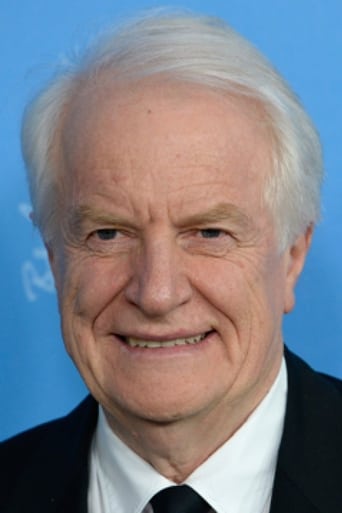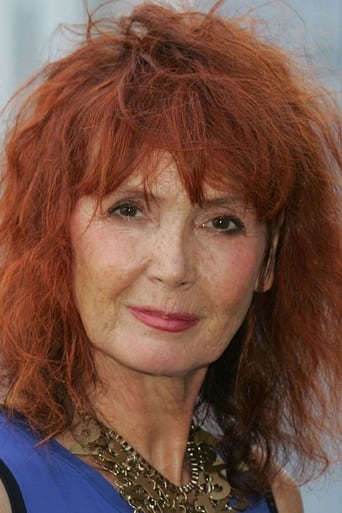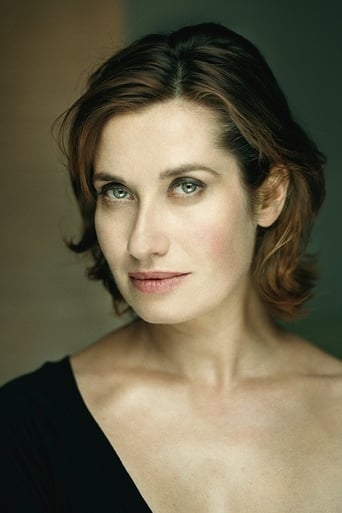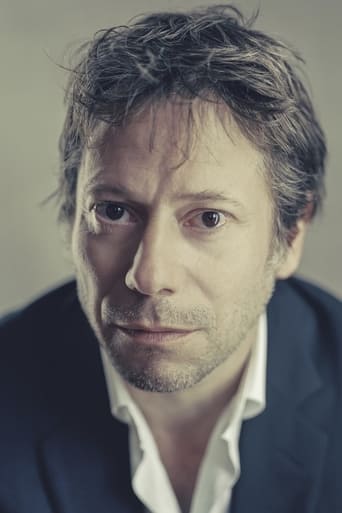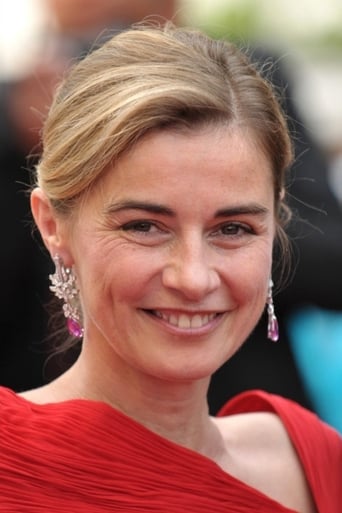CommentsXp
Best movie ever!
filippaberry84
I think this is a new genre that they're all sort of working their way through it and haven't got all the kinks worked out yet but it's a genre that works for me.
Nayan Gough
A great movie, one of the best of this year. There was a bit of confusion at one point in the plot, but nothing serious.
Alasdair Orr
Actress is magnificent and exudes a hypnotic screen presence in this affecting drama.
lsimon33
Last Year at Marienbad is one of my all-time favorite films. I like Hiroshima, Mon Amour, too, but find it less compelling (I know others would disagree with me). I am no stranger to anti-realist, surrealist, and experimental film. I thought it would be interesting to see a recent Resnais film that was actually available at Redbox! I was wrong. Wild Grass is neither amusing nor interesting. It is tedious, ridiculous, and nonsensical (and not in a good way). It "hints" at many aspects of the main character's past and personality, playfully suggesting he was a convicted murderer or rapist who has served his time. In addition to that, he acts in completely contradictory ways, is usually irrational and petulant, and is lecherous, dumb, and abusive to women. He slashes the woman's tires and she eventually finds this kind of behavior irresistible? He sexually assaults her business partner/friend in the latter's car, and the friend enjoys it? Can you say "misogyny"? And we're supposed to believe this beautiful young woman is his wife? I kept thinking: I must have gotten it wrong; this must be his daughter who is, for some reason, pretending to be his wife. A colossal casting error this alone. Maybe she was identified toward the beginning of the film as his daughter, but I couldn't bring myself to care enough to go back and re-watch the beginning. The main characters seem to have a lot of money, suggesting some level of responsibility (the woman, after all, is a dentist), but they act worse than teenagers, and even more irrationally and self-destructively. I felt compelled to see how it would end, but was, predictably, annoyed with myself for having wasted so much of my time. This is a very stupid film and I would not recommend it to anyone. And one reviewer here gave us the "key" to the film: the dentist represents Death! Wow. As if Ingmar Bergman never existed? If I have to read the film metaphorically in that way, then it depends entirely on a secret "key" that 99 percent of viewers will not get. I could think of nothing more pretentious than that. No thanks.
jdesando
"After cinema, nothing surprises us." NarratorIn Wild Grass, Georges (Andre Dussollier) finds a wallet, finds the owner, Marguerite (Sabine Azema), and finds an odd connection with her and his inner self. I have no idea if I'm right in all of this—director Alain Resnais (Last Year at Marienbad) has never been easy, but its obscurity seemed to tell me something about being human and quite a bit about wild-ass filmmaking by an 88 year old director who's throwing everything into the pot and hoping it comes out a tasty stew. What Georges is pursuing in Marguerite, an eccentric dentist, is part a romantic notion of his past as it may relate to the cinema and yet the painful recollection of past deeds too dark to articulate. That cinema is artificial is a leitmotif at least. His acceptance, her acceptance, and their recurring animosity reflect in relief the vicissitudes of love in all the sordid glory from cinema.Even trips to the police for each of them are more like therapy sessions than the business of identifying the robbery victim (Marguerite) and thanking the finder (Georges). The same policeman, reacting with the incredulity that usually comes only from the audience, lends a surreal take on the strange antics of the principals. Resnais is at full force, even in his eighties, with symbolism from wild grass growing in concrete cracks, unusual feet and shoes, a stolen bag floating almost free, and aviation that like cinema floats free but not without its rules. He creates these images as motifs in order to make order of Georges' obsessions, which become erotic and dangerous even as he seems more lost in his dreams and cinema than ever before. As George repeatedly backs into the protection of the door to the cinema, we can be quite sure Resnais is certifying the salutary and comforting embrace of film.That dreamlike state, with the voice over so kindly parsing some of George's passions, is best expressed in the cinema, where Bridges at Toko-Ri makes solid the theme of lost friendship and the transforming of reality into our own visions.
Howard Schumann
A surreal, madcap, on-again, off-again romance between a married 63-year old father of two and a middle-aged dentist and airline pilot is the subject of 87-year old French director Alain Resnais' latest film, Wild Grass. Based on Christian Gailly's novel, The Incident, from a screenplay by Laurent Herbiet and Alex Reval, Wild Grass treats its characters with respect and humor, yet the film, winner of the Jury Special Prize at the 2009 Cannes Film Festival, stands out more for the colorful cinematography by Eric Gautier and fine acting from Resnais' regulars Sabine Azéma and André Dussollier than for its puzzling narrative.The couple, Marguerite Muir (Azéma) and Georges Palet (Dussollier), meet after Marguerite, out shopping for a new pair of shoes, has her purse stolen by a thief on roller blades and consequently loses her red wallet filled with money, credit cards, and identification papers. Georges, however, recovers Marguerite's lost wallet beneath the wheel of his car and returns it to the police. Interested in aviation and intrigued by a photo of the wallet's owner dressed in a pilot's outfit, Georges decides that he wants to meet her.After the police inform Marguerite that her wallet has been turned in, she calls Georges to say thank you but he is expecting more and his longing for connection is not satisfied, beginning a pursuit that soon becomes an obsession. He sends her letters, leaves messages on her phone, and slashes her tires to keep her at home but she wants nothing to do with him. Ultimately he persists until she informs the police of the unwanted intrusion in her life. Typical of the screwball relationship, however, she suddenly begins to pursue Georges on her own, making visits to his house late at night and waiting for him in a café outside of a movie theatre where he is watching a favorite film from his childhood, The Bridges at Toko Ri. "You love me, then," Georges exclaims when he sees her for the first time.Throughout it all, there is an underlying hint of danger with suggestions made about Georges' possibly violent past which outbursts of temper seem to underscore. Even so, everything is handled with a light touch and one never fears for Marguerite's safety and elements of danger or even horror are quickly replaced by rapid shots of romance and even snippets of musicals. Like other aged directors swan songs, Rohmer's The Romance of Astrea and Celadon, Bergman's Saraband, and Kurosawa's Madadayo, Resnais', in his latest work, continues to grow and experiment, although some may say that the styles of these octogenarian directors have basically remained consistent throughout their careers. Far removed from the seriousness of his most famous films, Hiroshima, Mon Amour and Last Year at Marienbad, just when you think you have figured out Wild Grass, Resnais' whimsy keeps shifting into new territory and its bizarre twists and turns, fake endings, and character reversals will keep you off balance right up until the film's final frame. Like the wild grass in the title which grows where it is least expected, nothing is predictable in this playful but often too cutesy little film.
dbairdk
Wild Grass is filled with visual joy and playful surprises. It left me smiling from beginning to end. With a brilliant cast and incredible cinematography that will playfully take viewers from blue skies above to the very human folly down below, the story celebrates cinema storytelling itself, as well as our human wish to find some of that movie magic in our daily lives, no matter the consequences. Resnais is now 88 year old (or perhaps 88 years young, more appropriately), for he has created a cinematic cocktail that leaves viewers dizzy with delight and ready to ask the local projectionist to: "pour me another. I want to experience that again!"

